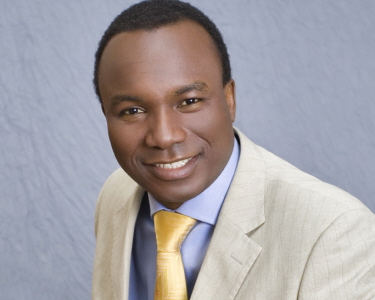Ukraine Pastor May Face New Investigation
 A prominent Ukraine pastor alleged to be part of a $100 million fraud case is maintaining his innocence as a new investigation against him is initiated.
A prominent Ukraine pastor alleged to be part of a $100 million fraud case is maintaining his innocence as a new investigation against him is initiated.
Pastor Sunday Adelaja, founder of The Embassy of the Blessed Kingdom of God for All Nations in Kiev, one of the largest churches in Eastern Europe, said Ukraine authorities are looking for ways to charge him with treason for preaching that he wanted to see Ukraine become a Christian nation.
The Interior Ministry claims Adelaja preached that the main task of his church was to create a “Christian state” in Ukraine, which “ignores the obvious fact of the Ukrainian statehood,” the Ukrainian news site PolitInform.org reported.
Adelaja said the new accusation proves that the fraud charges linking him to the King’s Capital financial group are simply an attempt to attack his ministry.
The Nigeria-born pastor, whose congregation was one of several to protest government corruption and alleged election fraud during Ukraine’s Orange Revolution in 2004, said the treason accusation could be placed on any church that seeks to influence its nation’s government.
“Everything that has happened is not because of King’s Capital, but it’s because of the influence of our church that is seen as a threat,” Adelaja said. “It’s about political repression.”
Adelaja openly teaches that churches should influence government, business and society, and made it the theme of his book Church Shift.
No additional charges have been filed, but the Ministry of Internal Affairs, led by Yuriy Lutsenko, has held closed-door meetings with Ukraine’s Cabinet of Ministers and President Viktor Yushchenko, asking them to launch an investigation into the alleged treason, PolitInform.org reported.
Adelaja has repeatedly denied involvement in King’s Capital, an investment company co-founded by a member of his church. The organization promised returns as high as 60 percent, but last November stopped paying dividends to investors.
Investors, most of whom were church members, went to authorities last fall, claiming they had lost as much as $100 million.
Adelaja says the financial group was not a Ponzi scheme, as some alleged, but a legitimate business that failed as a result of the global economic crisis. In late August, King’s Capital was declared bankrupt.
Despite Adelaja’s claims, several Ukrainian church leaders, including a group of nine bishops representing thousands of congregations, denounced the pastor in a statement last December, saying he repeatedly endorsed King’s Capital. Some also alleged that he was involved in its leadership.
In March, Adelaja was charged with embezzling funds “in very large amounts via fraud,” which carries a maximum sentence of 12 years in prison.
Adelaja said his ministry is suing the Interior Ministry and the police for “unlawful accusation and libel.”
“After five court hearings they have still not presented any evidence to the judge who asked for it in the first court hearing,” Adelaja said. “We see that we will win, and because of this they are trying something new with this new accusation.”
Christian attorney Joel Thornton, general counsel of the International Human Rights Group, believes Adelaja’s legal battles are rooted in racism and religious oppression.
“This really is about his success,” said Thornton, who consults Adelaja and has been involved in religious liberty cases throughout Europe for more than a decade. “If he weren’t a Nigerian immigrant pastor having one of the largest most active groups of congregations in Europe, which are made up largely of non-Nigerian members, he wouldn’t have these problems.”
Thornton may get involved in Adelaja’s case in January if there is no resolution before then. He said the controversy over King’s Capital complicates what would otherwise be a clear case of religious persecution.
He believes Adelaja’s claims that King’s Capital was a legitimate organization that failed because most of its investments were in real estate. But he said it remains unclear whether Adelaja endorsed the business, one of dozens launched by church members, from the pulpit.
“He told me he talked about it some, but he said he never [told members to] make an investment,” Thornton said. “I don’t believe he’s profited from it from what I know from him.”
He said Christians should be concerned about the Interior Ministry’s attempt to charge Adelaja with treason. In Europe, he said government officials try to control the spread of evangelical groups by lumping Christians in with dangerous sects or forcing churches to meet rigid criteria to register with the government.
Although he thinks it is unlikely to happen, Thornton said if Ukraine were successful in charging Adelaja with treason, other nations may follow its lead.
“Attacking a pastor who says we want to make this a Christian nation, that kind of approach, if Ukraine has some success with it, it could spread in those Eastern European countries,” Thornton said.














































